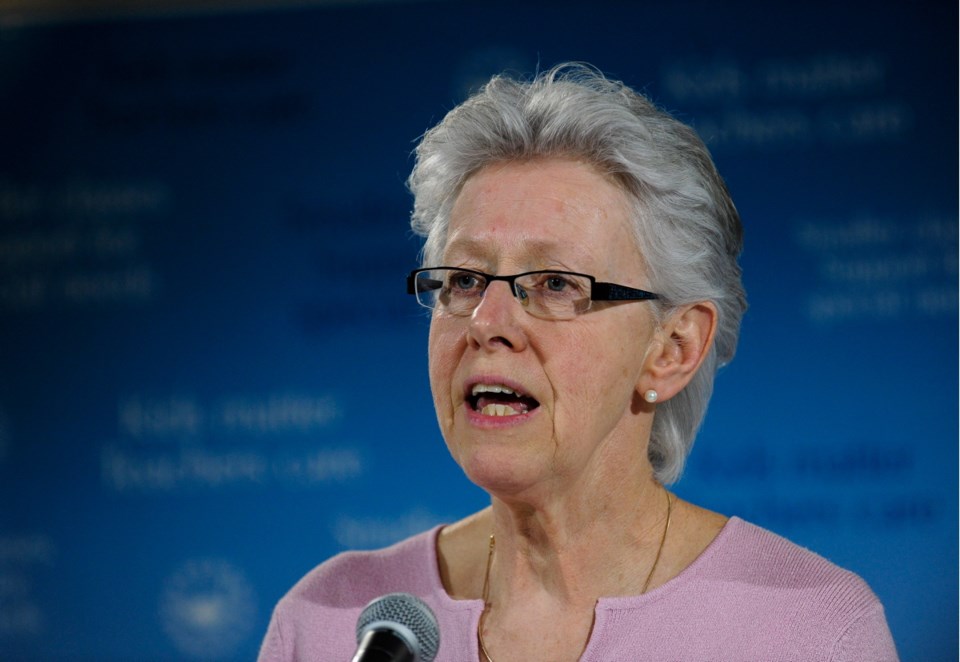The B.C. Teachers’ Federation wasted little time Thursday dismissing Premier Christy Clark’s proposal for a 10-year labour deal.
In exchange for a decade of peace, the proposal offers teachers the right to stage a full strike and index their salaries against average wage increases received by other public sector employees, such as nurses and college instructors.
The proposed framework would also create a $100-million fund for dealing with class size and other issues and set up a council that would give teachers a say in spending that money and setting policy.
“It’s a framework to reach a 10-year labour deal with B.C. teachers that will finally bring stability — a decade of stability — to classrooms for children in British Columbia,” Clark said.
The government claims that teacher salaries would have increased by an average of 2.0 per cent a year over the past decade under an indexed system, slightly higher than the 1.8 per cent average they did receive.
“Had we used this model over the last decade, teachers would be further ahead today than they are under the current system, and they would be further ahead without all the heartache that’s gone along with all the labour disruptions that we’ve seen,” Clark said.
But teachers union president Susan Lambert said the proposal requires teachers to forfeit their rights to negotiate wages and working conditions.
“So give up your bargaining rights on your two critical objectives, and we’ll give you a 10-year deal,” she said.
“Well, it’s ludicrous, and it would be funny if it wasn’t so sad.”
She said the proposal ignores court rulings and the government’s own legislation that give teachers the right to negotiate class size and composition issues at the bargaining table.
“I’m wondering what the real agenda is here,” she said. “They must have known that we could not accept this proposal. So are they trying to characterize us as the impediments to bargaining?”
Education Minister Don McRae responded by saying that Lambert had misinterpreted the government’s proposal, and that class size and composition could still be negotiated at the bargaining table.
“As the BCTF quite properly points out, the government’s own Bill 22 allows for these issues to be negotiated,” he said.
“The government and its education partners fully expect to negotiate class size and composition issues irrespective of the length of the agreement. Teachers have the right to negotiate class size and composition, whether it is toward a two-year contract or a 10-year contract.”
McRae said the confusion reinforces the need for the two sides to sit down and discuss the government’s framework.
“It would be unfortunate for B.C. students and families if we allowed misunderstandings to prevent us from exploring any potential path to labour peace.”
The government’s proposal would set tight timelines for negotiations, which would begin in March. If no agreement is reached by June 15, the labour minister will appoint a mediator, who will report out by June 30 if there is still no agreement.
The mediator will issue recommendations for a settlement by July 15, and if neither party rejects those recommendations, they will become the basis for a new collective agreement.
Under the proposal, the government can reject the mediator’s recommendations, but must provide an alternative offer by Aug. 7. If the B.C. Teachers’ Federation rejects either the mediator’s or the government’s proposals, they must issue strike notice by Aug. 31.
Schools will not open in September if strike notice is issued.
The government says the framework is an attempt to eliminate the current situation that allows teachers to stage only limited strike action, which can disrupt an entire school year.
By restricting any strike action to the start of a school year, districts would have an opportunity to better manage the effect, the government said.



